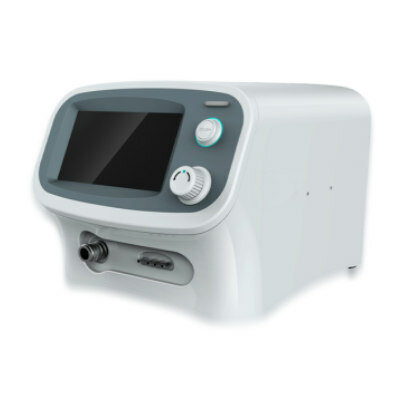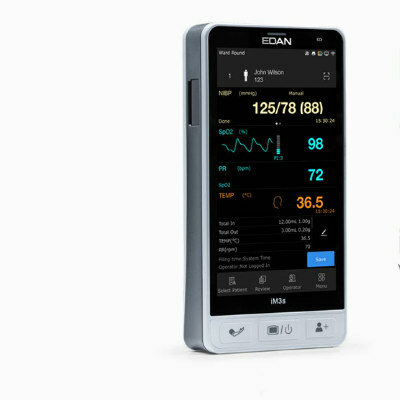Sibling Stem Cells May Aid Rare Disorder
|
By HospiMedica staff writers Posted on 04 May 2001 |
A study has shown that using a novel bone marrow transplantation procedure to transfer stem cells of their siblings into patients with chronic granulomatous disease (CGD) significantly improved the functioning of their immune systems. The study, conducted by researchers at the U.S. National Institute of Allergy and Infectious Disease (NIAID; www.niaid.nih.gov), was published in the March 22 issue of The New England Journal of Medicine.
CGD leaves patients vulnerable to infections and inflammatory growths, or granulomas, which can damage the lungs, liver, and other organs. The low-intensity stem cell transplantation procedure uses no radiation and is less risky than conventional stem cell transplantation because only some, rather than all, of the patient's bone marrow cells are knocked out with drugs before the transplant. Thus, patients have a mixture of their own and their sibling's immune cells. T cells, needed to fight infection and facilitate transplantation of the donor stem cells, are reintroduced gradually, starting about one month after the transplant, in order to establish a stable presence of transplanted donor cells.
Of the 10 people enrolled in the study, six had complete engraftment of donor stem cells, and two had partial engraftment. In the median 18 months of follow-up, investigators observed only one serious infection in a CGD patient. "Without the re-infusion of donor T cells, 70-80% of the grafts would be rejected,” noted Dr. Mitchell E. Horowitz, one of the lead researchers. "We had to gradually add back T cells over time, enough to prevent
rejection but not so much as to cause graft-versus-host disease.”
Related Links:
NIAID
New England Journal of Medicine
CGD leaves patients vulnerable to infections and inflammatory growths, or granulomas, which can damage the lungs, liver, and other organs. The low-intensity stem cell transplantation procedure uses no radiation and is less risky than conventional stem cell transplantation because only some, rather than all, of the patient's bone marrow cells are knocked out with drugs before the transplant. Thus, patients have a mixture of their own and their sibling's immune cells. T cells, needed to fight infection and facilitate transplantation of the donor stem cells, are reintroduced gradually, starting about one month after the transplant, in order to establish a stable presence of transplanted donor cells.
Of the 10 people enrolled in the study, six had complete engraftment of donor stem cells, and two had partial engraftment. In the median 18 months of follow-up, investigators observed only one serious infection in a CGD patient. "Without the re-infusion of donor T cells, 70-80% of the grafts would be rejected,” noted Dr. Mitchell E. Horowitz, one of the lead researchers. "We had to gradually add back T cells over time, enough to prevent
rejection but not so much as to cause graft-versus-host disease.”
Related Links:
NIAID
New England Journal of Medicine
Latest Surgical Techniques News
- Pioneering Sutureless Coronary Bypass Technology to Eliminate Open-Chest Procedures
- Intravascular Imaging for Guiding Stent Implantation Ensures Safer Stenting Procedures
- World's First AI Surgical Guidance Platform Allows Surgeons to Measure Success in Real-Time
- AI-Generated Synthetic Scarred Hearts Aid Atrial Fibrillation Treatment
- New Class of Bioadhesives to Connect Human Tissues to Long-Term Medical Implants
- New Transcatheter Valve Found Safe and Effective for Treating Aortic Regurgitation
- Minimally Invasive Valve Repair Reduces Hospitalizations in Severe Tricuspid Regurgitation Patients
- Tiny Robotic Tools Powered by Magnetic Fields to Enable Minimally Invasive Brain Surgery
- Magnetic Tweezers Make Robotic Surgery Safer and More Precise
- AI-Powered Surgical Planning Tool Improves Pre-Op Planning
- Novel Sensing System Restores Missing Sense of Touch in Minimally Invasive Surgery
- Headset-Based AR Navigation System Improves EVD Placement
- Higher Electrode Density Improves Epilepsy Surgery by Pinpointing Where Seizures Begin
- Open-Source Tool Optimizes Placement of Visual Brain Implants
- Easy-To-Apply Gel Could Prevent Formation of Post-Surgical Abdominal Adhesions
- Groundbreaking Leadless Pacemaker to Prevent Invasive Surgeries for Children
Channels
Critical Care
view channel
Ingestible Smart Capsule for Chemical Sensing in the Gut Moves Closer to Market
Intestinal gases are associated with several health conditions, including colon cancer, irritable bowel syndrome, and inflammatory bowel disease, and they have the potential to serve as crucial biomarkers... Read moreNovel Cannula Delivery System Enables Targeted Delivery of Imaging Agents and Drugs
Multiphoton microscopy has become an invaluable tool in neuroscience, allowing researchers to observe brain activity in real time with high-resolution imaging. A crucial aspect of many multiphoton microscopy... Read more
Novel Intrabronchial Method Delivers Cell Therapies in Critically Ill Patients on External Lung Support
Until now, administering cell therapies to patients on extracorporeal membrane oxygenation (ECMO)—a life-support system typically used for severe lung failure—has been nearly impossible.... Read morePatient Care
view channel
Portable Biosensor Platform to Reduce Hospital-Acquired Infections
Approximately 4 million patients in the European Union acquire healthcare-associated infections (HAIs) or nosocomial infections each year, with around 37,000 deaths directly resulting from these infections,... Read moreFirst-Of-Its-Kind Portable Germicidal Light Technology Disinfects High-Touch Clinical Surfaces in Seconds
Reducing healthcare-acquired infections (HAIs) remains a pressing issue within global healthcare systems. In the United States alone, 1.7 million patients contract HAIs annually, leading to approximately... Read more
Surgical Capacity Optimization Solution Helps Hospitals Boost OR Utilization
An innovative solution has the capability to transform surgical capacity utilization by targeting the root cause of surgical block time inefficiencies. Fujitsu Limited’s (Tokyo, Japan) Surgical Capacity... Read more
Game-Changing Innovation in Surgical Instrument Sterilization Significantly Improves OR Throughput
A groundbreaking innovation enables hospitals to significantly improve instrument processing time and throughput in operating rooms (ORs) and sterile processing departments. Turbett Surgical, Inc.... Read moreHealth IT
view channel
Printable Molecule-Selective Nanoparticles Enable Mass Production of Wearable Biosensors
The future of medicine is likely to focus on the personalization of healthcare—understanding exactly what an individual requires and delivering the appropriate combination of nutrients, metabolites, and... Read more
Smartwatches Could Detect Congestive Heart Failure
Diagnosing congestive heart failure (CHF) typically requires expensive and time-consuming imaging techniques like echocardiography, also known as cardiac ultrasound. Previously, detecting CHF by analyzing... Read moreBusiness
view channel
Expanded Collaboration to Transform OR Technology Through AI and Automation
The expansion of an existing collaboration between three leading companies aims to develop artificial intelligence (AI)-driven solutions for smart operating rooms with sophisticated monitoring and automation.... Read more
















